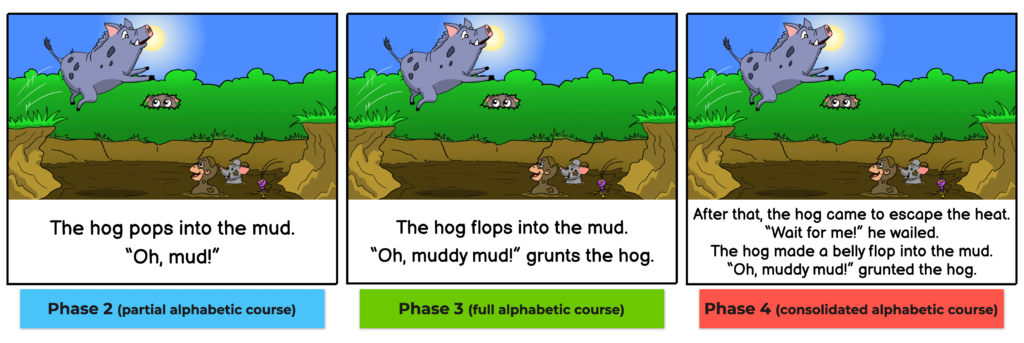How can you help your beginning readers? As a teacher or a parent, it is sometimes frustrating to find books that match the skills of your beginning readers.
______

WordScientists Team | www.WordScientists.org
Beginning readers need practice in books that have the phonics patterns they are learning. As they apply this knowledge to sound out words, connections are made and reinforced in the brain. This eventually leads to recognizing words by sight. But the brain also accumulates information about letter sounds and letter-sound combinations with practice. This eventually helps children read unfamiliar words faster because of the phonics knowledge they have accumulated.
What kind of books should they read?
Children should read decodable books that have the phonics patterns they have already learned or are currently learning. Decodable books have words that are controlled for certain spelling patterns. The stories in the book are told using words with specific phonics patterns. Also, there are high-frequency words students typically learn to recognize early in their reading development because they occur frequently in books.
Look at the example of decodable books from WordScientists where the same cumulative story about jungle animals is told with three different sets of words.

The story from Phase 2 uses high-frequency words and words with only short vowel sounds and the pattern Consonant-Vowel-Consonant (CVC: hog, pops, mud) and one -s ending for tense.
The same story in Phase 3 is told with more complex short vowel words (CCVC, CVCC, CCVCC: flops, grunts).
The same story in Phase 4 features long vowels: silent e (made, escape) and vowel teams: came, escape, heat, wait, wailed, made). A few two-syllable words challenge students to apply their knowledge in longer words.
Children will be more successful with books connected to the phonics instruction they are receiving in school. Visit WordScientists today and explore free phonics lessons and decodable books that can provide the right support your beginning readers need.
